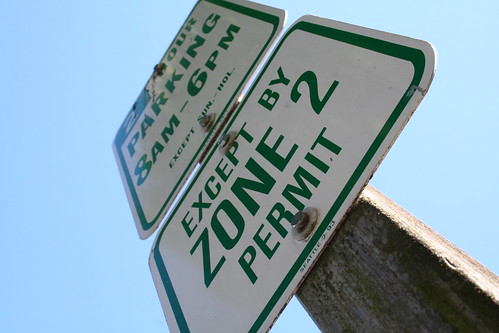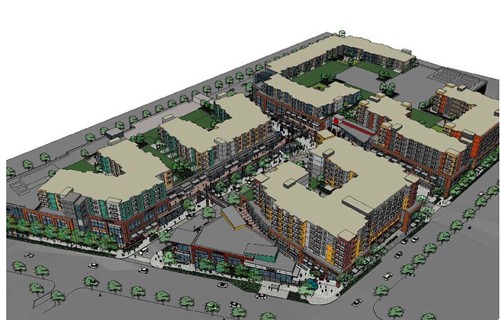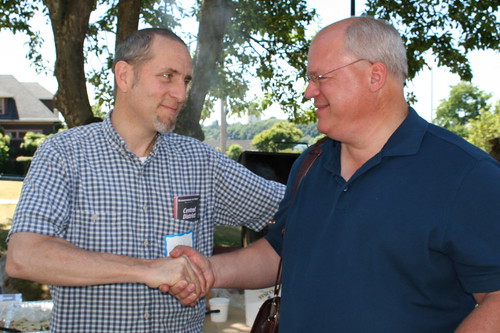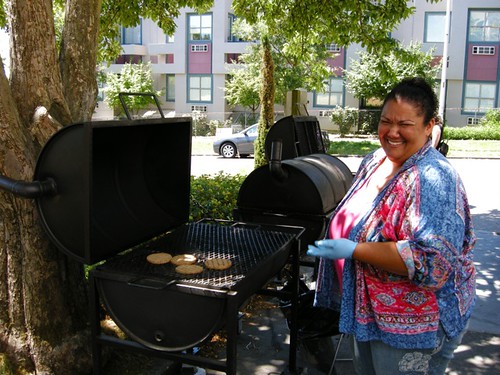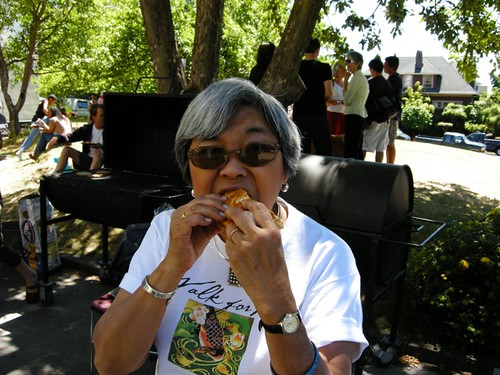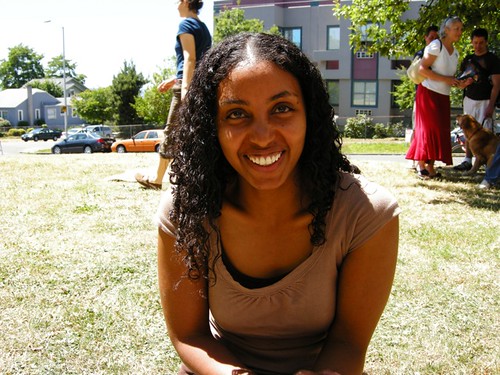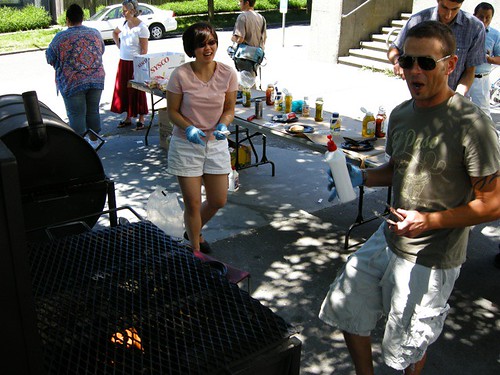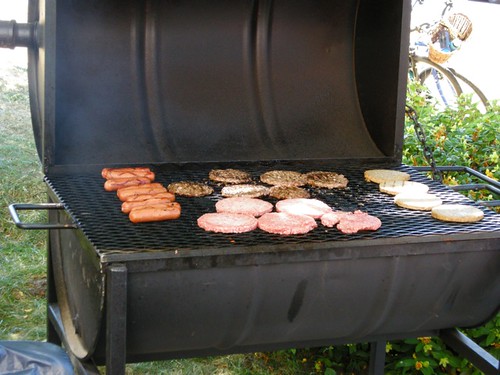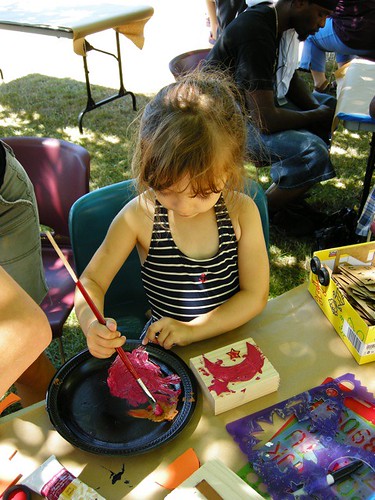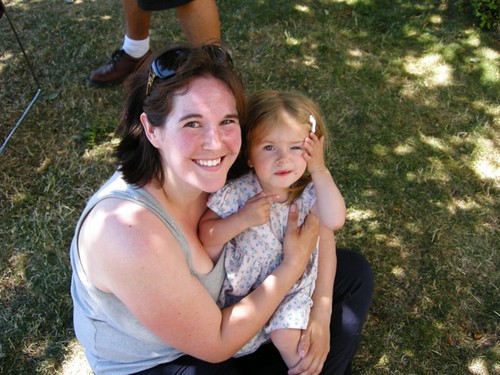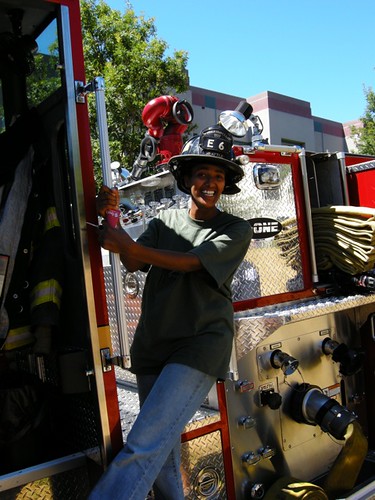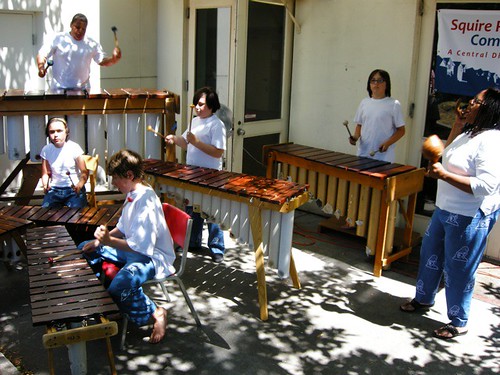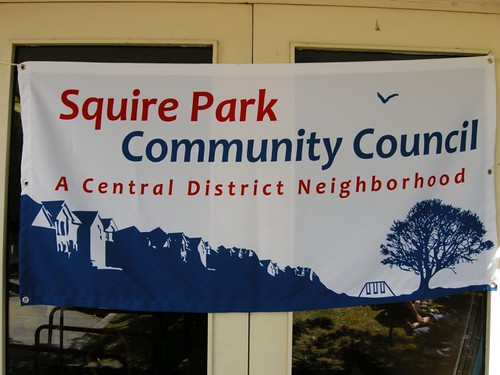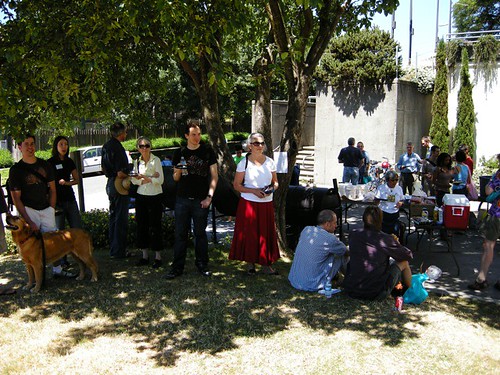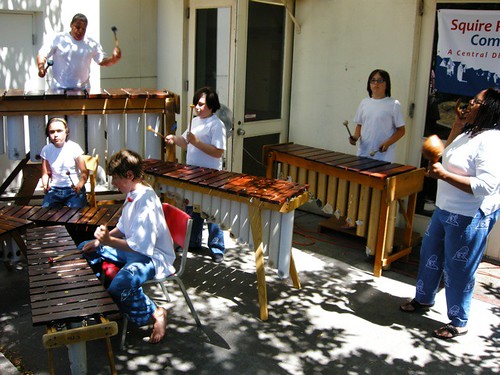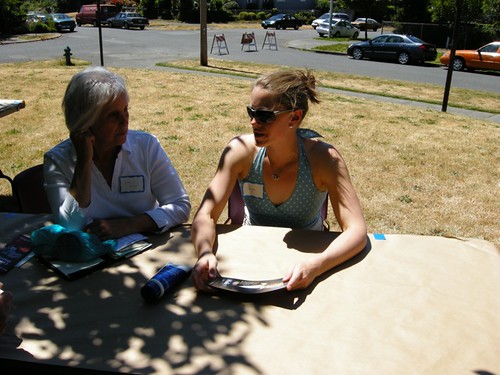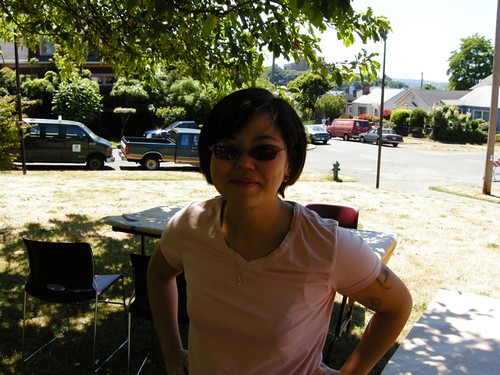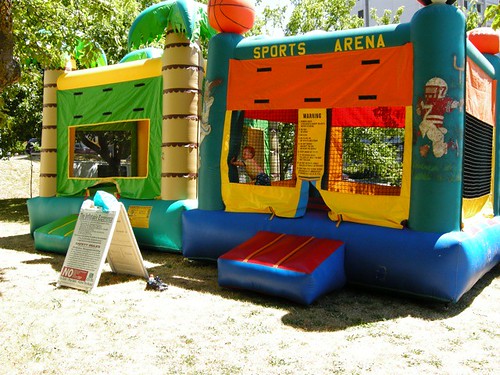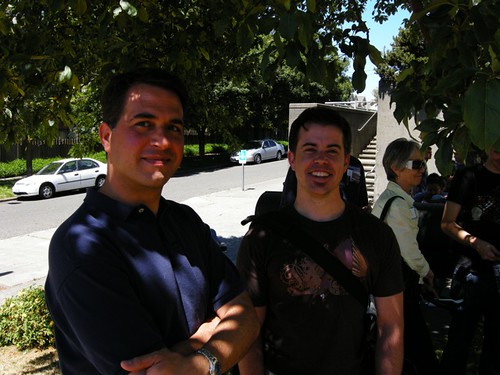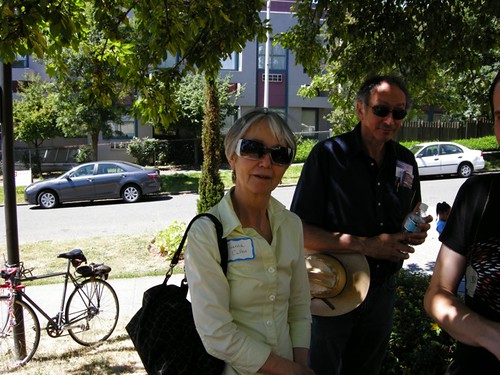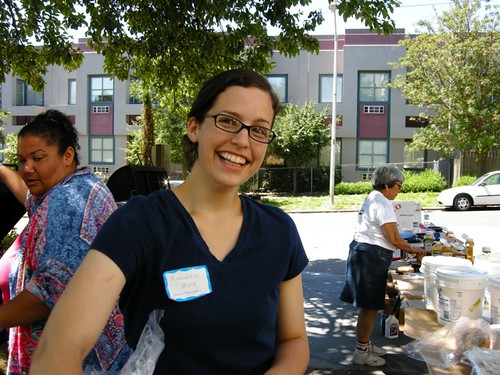The Squire Park Community Council meeting on Saturday featured a presentation about the status of the big new development on the Goodwill property at Rainier and Dearborn. The presenter was Darryl Vange of Ravenhurst Development, one of companies involved in the project, who was chalking up his 126th community meeting on the topic.
The short answer on the status is that the project is stalled at the city level for the rezoning of the property from industrial to retail/residential mixed-use. In May the rezone was recommended by the city’s Director of Planning & Development, and that was appealed by project opponents. An appeal hearing was originally scheduled for June, but got pushed out to September 22nd because the appellants weren’t prepared to present their challenge at that time. If the appeals are denied in September, the next step would be city council approval of the rezone in the first or second quarter of 2009. According to Mr. Vange, this pushes the earliest start of construction out to late 2010, with an opening in late 2012.
It’s a huge project, with an estimated cost of $350 million. In fact, they’ve already spent $6 million on just the planning process. Once complete, it will contain a mix of big-box and smaller retail stores, 550 apartments, and 2200 underground parking spaces. Here’s the specific breakout:
- A 170,000 sq. foot Target store
- One other big box store, possibly Lowe’s (they’d close the Rainier location), or another retailer like J.C. Penny’s
- A 50,000 sq. foot grocery store
- 4 25,000 sq. foot retail stores, about the size and type of Best Buy, etc
- 30-40 small retail spaces for restaurants, etc
- 80-100 very-low-income apartments for seniors, priced for those with incomes around $14,000 per year
- 100-120 low-income apartments priced for people earning around $27,000 per year
- 350 market rate apartments (described as being at the lower end of market rate)
The development site is about 11 acres, mostly owned by Goodwill (for perspective, developers claim it would spread over 70 acres if built to normal suburban standards). Goodwill will turn the property over to the developers in exchange for a new building on the site to house their retail and job-training operations. Evidently their existing buildings are in a very poor state of repair, and this project is a way for Goodwill to continue their mission at that site without having to raise private funds to build new facilities themselves.
One of my original concerns was the car-centric nature of the development, starting with the 2,200 parking stalls. To contrast that, Mr. Vange says that a comparable development in the suburbs would have about 3,300 spaces. He also says that the project is designed to support other modes of travel too, with 300 spots to park bikes (both above and below ground), 12-22 foot wide sidewalks and traffic signal changes to support pedestrians, and access to several major bus lines and a possible Jackson St. streetcar in the future.
The project’s impact on traffic has been studied as part of the Environmental Impact Statement (EIS). For the busiest intersection at Rainier & Dearborn, the average delay during peak hours would go up about 17%, increasing the wait by 7 seconds. All other intersections would see smaller impacts than that. The project will also pay for a variety of traffic improvements, including an additional lane southbound on Rainier between Jackson & Dearborn.
The other issue is the type of retail. The large spots will definitely be national chains, but what about the smaller stores? Is there any commitment to supporting locally owned businesses? According to Mr. Vange, the answer is yes. They’ve pledged to subsidize the leases for small businesses up to $100,000 per year, bringing the overall rate down to about $27 per square foot per year for about 10 businesses. For comparison, that’s about the same as the rate for commercial space around 23rd & Jackson.
I came out of the presentation feeling more positive about the project than I had before. I end up shopping at Target once a month or so for some basic things, and it would be nice to do it here in the neighborhood instead of driving to Northgate or West Seattle. A good grocery store would also be a benefit to the area, and it would be hard to turn down 200 units of affordable housing. And while the sheer number of parking spaces still gives me pause, I’m guessing that the cost of gas in 2012 and beyond will keep those from being 100% utilized.
Mr. Vange’s parting words to the Squire Park group were to encourage people to speak out if they support the project. He says the city council always hears from opponents of projects, but rarely from the supporters.
Both supporters and opponents will have their next chance to speak out on Monday, September 22nd.
